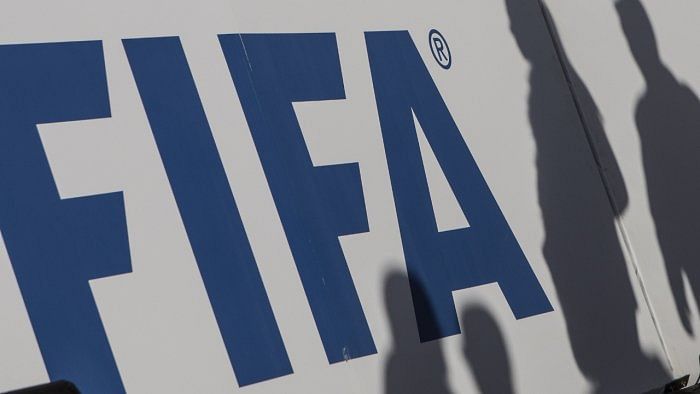
World football governing body FIFA on Tuesday suspended the All India Football Federation (AIFF) citing "undue influence from third parties".
In a statement, FIFA said: "The Bureau of the FIFA Council has unanimously decided to suspend the All India Football Federation (AIFF) with immediate effect due to undue influence from third parties, which constitutes a serious violation of the FIFA Statutes."
So, what does the suspension entail? Why was it imposed on the AIFF? And what repercussions does the move have for India and the game? Here's the low-down:
What led to the suspension?
It all began when the Sports Ministry said that AIFF president Praful Patel had no mandate to hold office after his term expired in 2020. Patel had completed three four-year terms flouting the National Sports Code which mandates 12 years as the maximum term for a national sports federation chief.
On May 18, the Supreme Court ousted Patel as AIFF president and appointed a three-member Committee of Administrators (CoA), headed by former top court judge AR Dave, to manage the affairs of the AIFF.
The SC then directed the AIFF executive committee to hold elections as per the schedule proposed by the CoA. The top court said that the Electoral College for the executive committee of AIFF would have representatives from 36 state associations and 36 representatives of eminent football players.
The elections were to be held on August 28 and the poll process was to start on August 13, as per timeline prepared by the CoA.
The appointment of the CoA, however, was interpreted as “third-party interference" by FIFA who on August 6 threatened to suspend the AIFF, and followed through with suspension on August 16.
In a statement, the world body said, "It's 'not a prudent idea' to have an equal number of eminent players alongside the state association representatives in the electoral college. The draft constitution submitted by the CoA to the Supreme Court states the electoral college will have representatives from 36 state associations and 36 eminent football players from all over India - 24 male and 12 female. The world body is okay with the executive committee having 25 per cent former players as co-opted members."
What repercussions does the move have on India?
The ban not only ruins India's chances of hosting the Under-17 Women's World Cup scheduled for October but is likely to affect the future of Indian football as a whole.
Losing the under-17 women's World Cup hosting rights is a big blow to Indian football and the economy. The tournament, said to be the third most important event on the FIFA calendar for Women’s competitions with 16 countries playing in 32 games, was primed to be a game changer for Indian football through "upgradation of infrastructure, improved game operations standards and refining the overall quality of the game".
The future of Indian football looks bleak as besides ruining India's chances of hosting international tournaments, the ban also prohibits India from both competing in matches and signing foreign players for club competitions.
In addition, national teams will be prohibited from participating in international matches. Clubs will also be barred from competing in continental tournaments.
The move is also likely to affect India's FIFA ranking.
Will the ban be lifted?
This is the first time the AIFF has been banned by FIFA in its 85-year history. FIFA has enlisted several measures for lifting the ban.
In a statement, FIFA had said that "The suspension will be lifted once an order to set up a committee of administrators to assume the powers of the AIFF Executive Committee has been repealed and the AIFF administration regains full control of the AIFF’s daily affairs."
FIFA has said that the lifting of the ban is subject to certain conditions and has enlisted several measures for the same, namely:
- The AIFF constitution to be revised as per the requirements of FIFA and the AFC and to be approved by the AIFF general assembly without interference from any third party
- The AIFF to carry out the upcoming electoral process as per the statutory requirement and to hold its elections based on the pre-existing membership structure of AIFF
- Repeal of the CoA mandate in full
- The AIFF administration to be fully in charge of the AIFF's daily affairs
- An independent electoral committee to be elected by the AIFF general assembly to run the elections of a new executive committee
A Supreme Court hearing on the ongoing matter will be heard on Wednesday.
(With inputs from agencies.)